Project management can often feel fragmented—different teams using different tools, inconsistent processes, and a lack of visibility into progress. The result? Missed deadlines, duplicated efforts, and frustrated teams. Microsoft 365 helps organizations overcome these challenges by offering a unified platform to create standardized project management processes that drive clarity, consistency, and collaboration.
With tools like Microsoft Teams, SharePoint Online, and Power BI, Microsoft 365 empowers teams to plan, execute, and track projects in a connected workspace. These familiar tools make it easier to align project workflows, centralize communication, and improve overall efficiency—regardless of team size or project complexity.
In this post, we’ll explore how to leverage Microsoft 365 to establish a standardized, scalable approach to project management that works across your entire organization.
Manage Projects with Microsoft 365, Power Platform, and Teams
Collaborate seamlessly from anywhere, with BrightWork 365 and Microsoft Teams
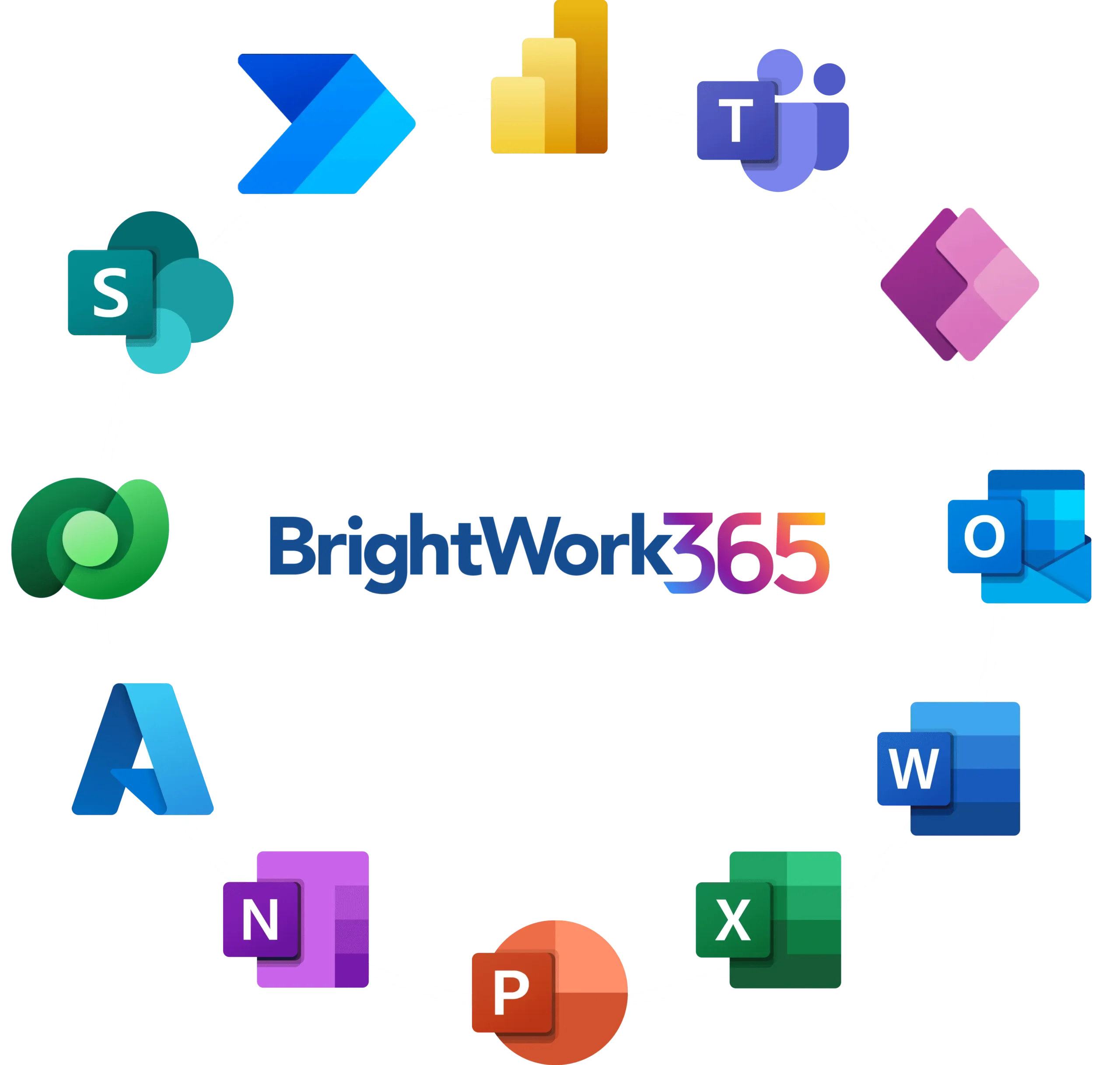
Why Standardization is Essential to Project Management Success
Standardizing project management processes is one of the most effective ways to ensure consistent project delivery across an organization. When teams follow a unified approach—regardless of project type or department—they’re better equipped to deliver on time, within scope, and aligned with business objectives.
Standardized processes create a common language for project work, reduce unnecessary variation, and provide a clear framework for decision-making. This consistency leads to improved forecasting, better resource management, and enhanced performance tracking—giving leadership the visibility needed to align projects with strategic goals.
For more project management standardization tips, check out our guide to deploying a PPM solution on Microsoft 365. Here are some ways you can adopt and improve standardization in your project management.
Improving Efficiency with Automated Workflows
Inconsistent workflows are a major source of delays and confusion. When every team handles tasks differently, it becomes harder to track progress, manage dependencies, and communicate effectively.
By using Microsoft 365 tools like Microsoft Planner, Teams, and Power Automate, organizations can define and automate standardized project workflows. This reduces manual effort, ensures repeatable success, and helps teams focus more on execution and less on process setup. The result? Faster project delivery with fewer roadblocks.
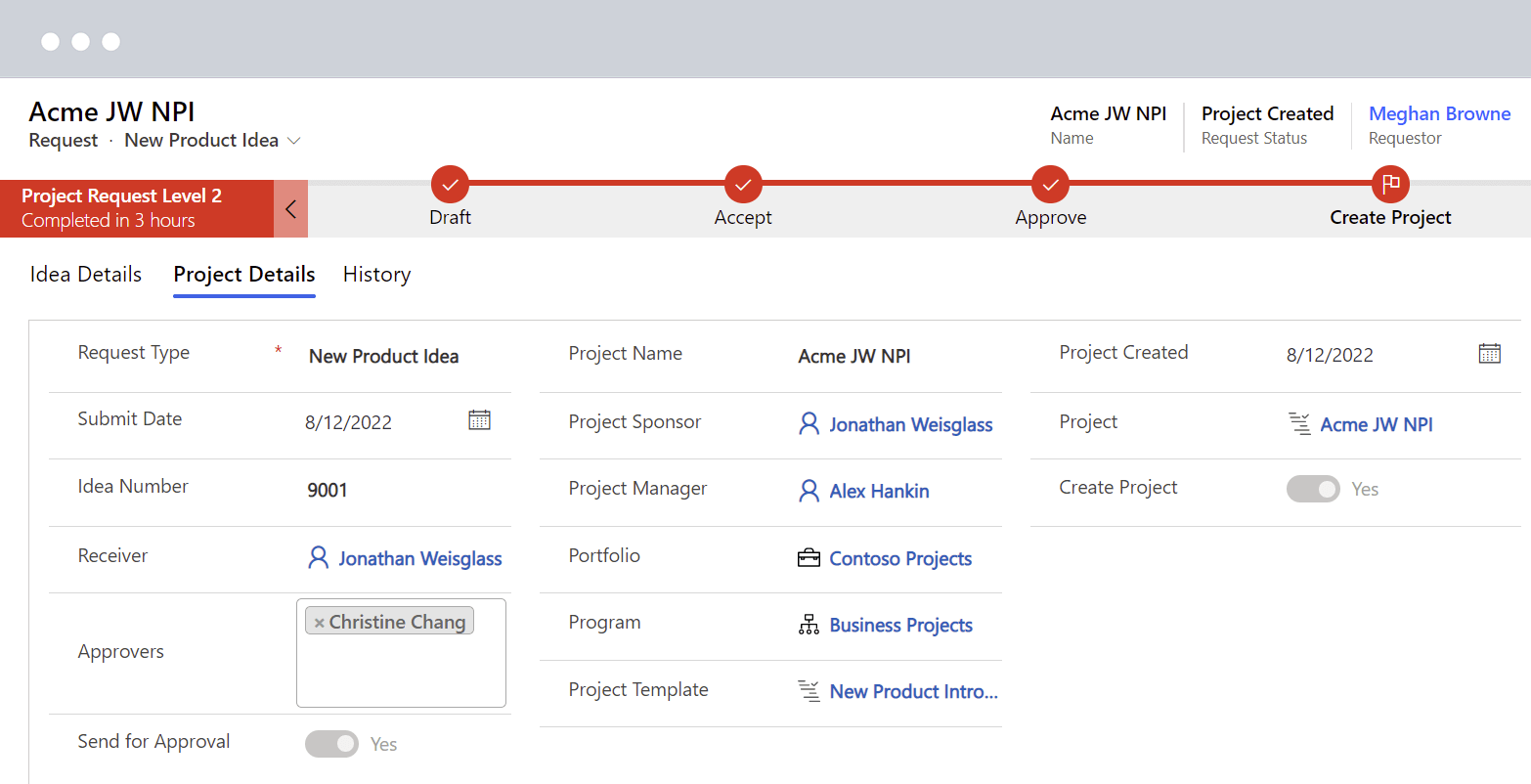
Reducing Risks with Clear Governance Frameworks
Without clear governance, projects are more likely to run into compliance issues, cost overruns, or scope creep. Standardized governance frameworks provide guardrails that help teams stay within agreed parameters, while also making it easier to enforce policies and manage enterprise risks.
Microsoft 365 supports this by enabling centralized document management with SharePoint Online, secure collaboration in Teams, and advanced reporting through Power BI. These tools help enforce consistent standards and give stakeholders real-time insights into project health and risk exposure.
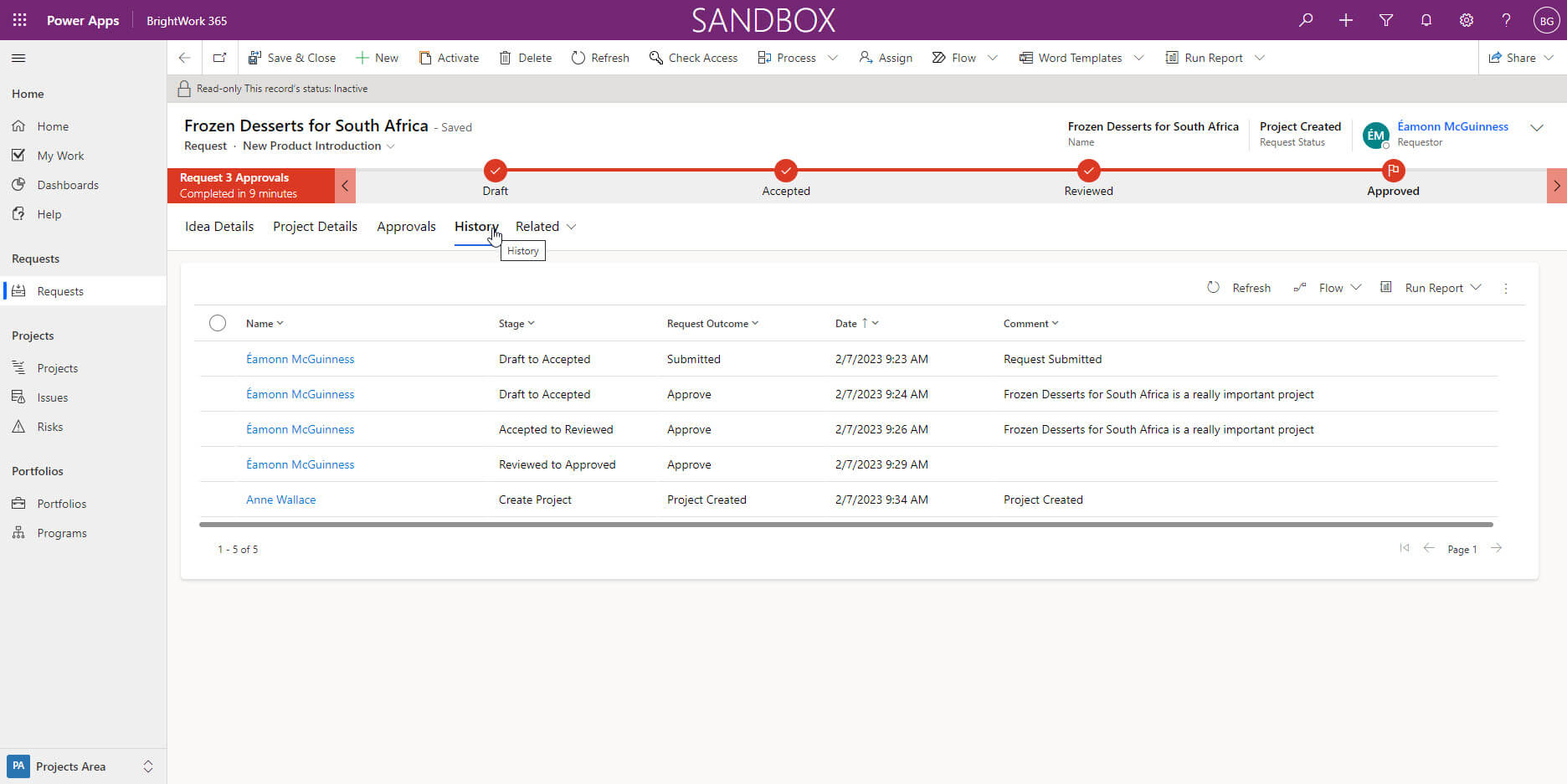
Enhance Communication with Collaboration Tools
Project success hinges on collaboration—and that’s especially true for cross-functional teams. Microsoft 365 fosters seamless teamwork by integrating communication and project management into a single platform.
With Microsoft Teams as a hub, team members can chat, meet, share files, and co-edit documents in real time. SharePoint Online ensures everyone has access to the latest project materials, while tools like OneNote and To Do help with task tracking and information sharing. This integrated experience breaks down silos and keeps everyone aligned on project goals and responsibilities.
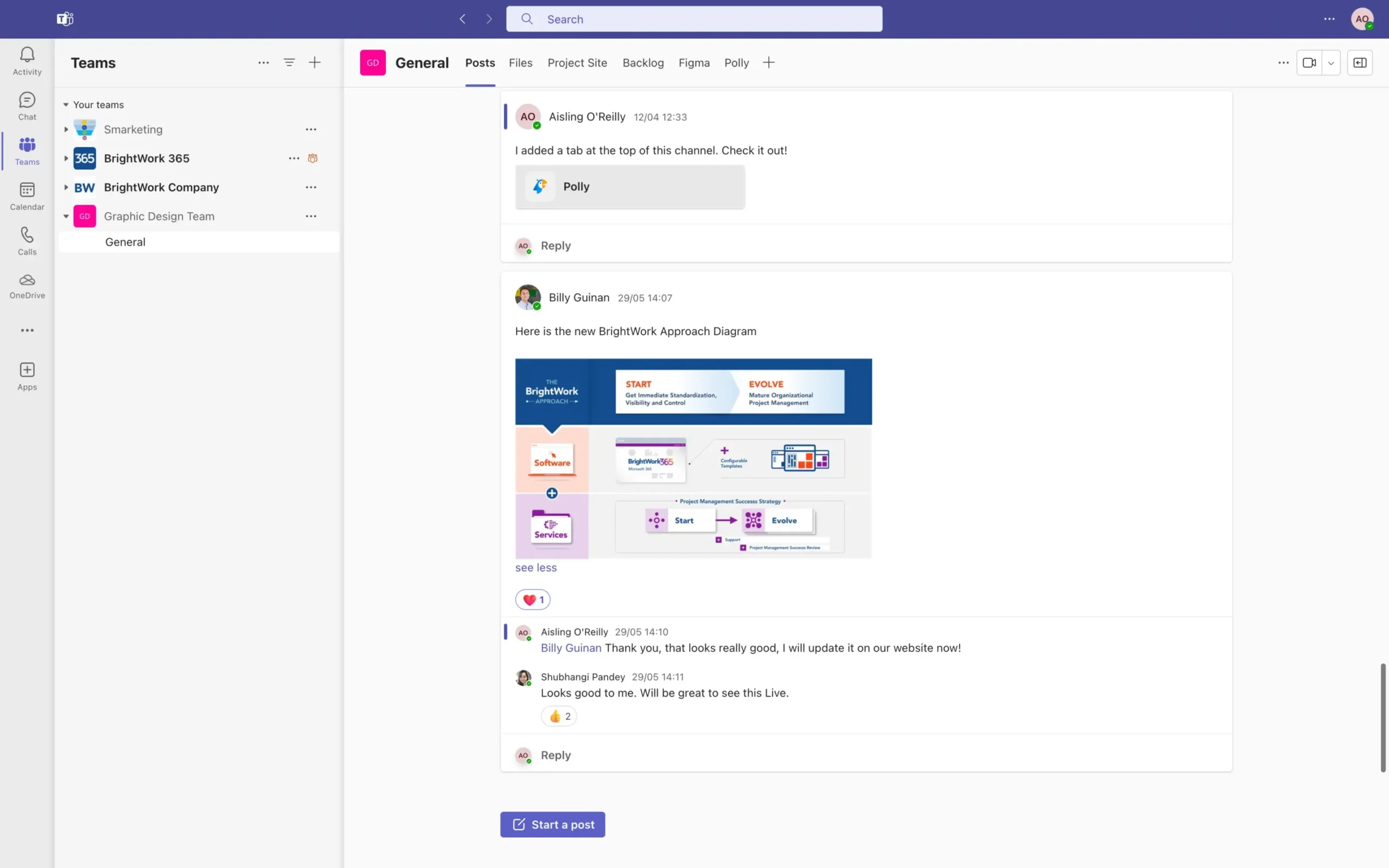
Essential Microsoft 365 Tools for Standardizing Project Management
One of the biggest advantages of using Microsoft 365 for project management is the ability to standardize processes using familiar, connected tools. These applications work together to support consistent project execution, streamline communication, and enable efficient business process automation.
With powerful project management integrations across the Microsoft ecosystem, teams can build a unified project environment that scales with the needs of the organization.
Power Apps for Built-in Templates
Project templates, built using Microsoft Power Apps, provide a structured and intuitive way to manage projects within Microsoft 365. These customizable templates guide teams through every stage of the project lifecycle—from initiation to closure—ensuring consistency, compliance, and clarity.
With built-in forms, task lists, and dashboards, teams can quickly launch projects while following standardized processes tailored to their needs. The Power Apps foundation ensures flexibility, scalability, and seamless integration with the Microsoft ecosystem.
Microsoft Teams for Project Collaboration
Microsoft Teams acts as the digital command center for project collaboration. It brings together chat, meetings, file sharing, and third-party integrations in one interface—creating a seamless communication experience for distributed teams.
With Teams channels dedicated to specific projects, everyone stays aligned with real-time updates, shared calendars, and threaded conversations. Teams also integrates natively with Planner and SharePoint, making it easy to connect discussions with tasks and documents—boosting transparency and productivity.
Power Automate for Business Process Automation
Microsoft Power Automate plays a critical role in reducing manual effort and improving consistency through workflow automation. Teams can use it to automate routine project tasks—like approvals, notifications, and task assignments—without needing advanced coding skills.
By embedding automation into day-to-day project work, organizations can accelerate delivery, minimize errors, and enforce standard operating procedures. Power Automate ensures that every workflow follows the same path, contributing to stronger governance and overall project efficiency.
How BrightWork 365 Supports Standardized Project Management
As organizations embrace digital transformation, the need for scalable and standardized processes across the project lifecycle becomes critical. BrightWork 365, built on the Microsoft Power Platform and fully integrated with Microsoft 365, helps organizations implement a consistent, efficient approach to project lifecycle management.
By combining task management software, workflow automation, and advanced project tracking capabilities, BrightWork 365 simplifies the adoption of best practices while enabling greater visibility, accountability, and control across your project portfolio.
Here’s how BrightWork 365 helps you standardize project management processes and align projects with strategic business goals.
Pre-Built Project Templates for Consistency
BrightWork 365 offers project and portfolio templates, content templates, and form configurators to bring consistency and structure to projects of all sizes and complexity levels. These ready-to-use tools standardize project setup, documentation, and data capture across teams, ensuring every project follows best practices.
Whether managing simple tasks or complex portfolios, users can tailor templates to their needs while maintaining a common framework—promoting clarity, reducing errors, and improving overall project visibility and control.
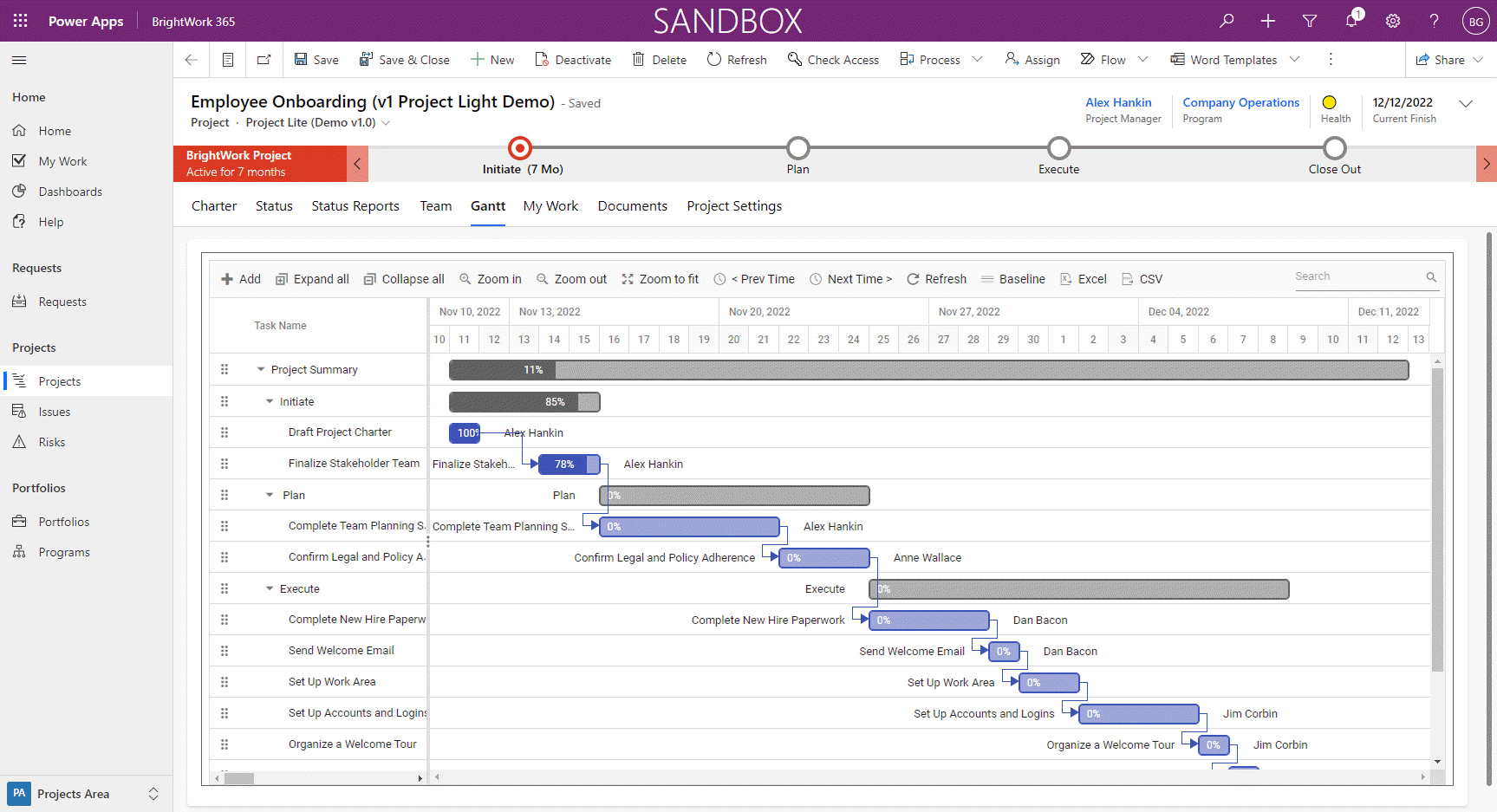
Workflow Automation with Microsoft Power Platform
BrightWork 365 leverages Microsoft Power Automate and Power Apps to deliver powerful, low-code business process automation. From initiating projects to managing approvals and sending real-time notifications, these tools reduce manual effort and increase accuracy.
This workflow automation ensures tasks are completed in the right order, at the right time, with minimal oversight—driving faster execution and reducing the potential for human error.
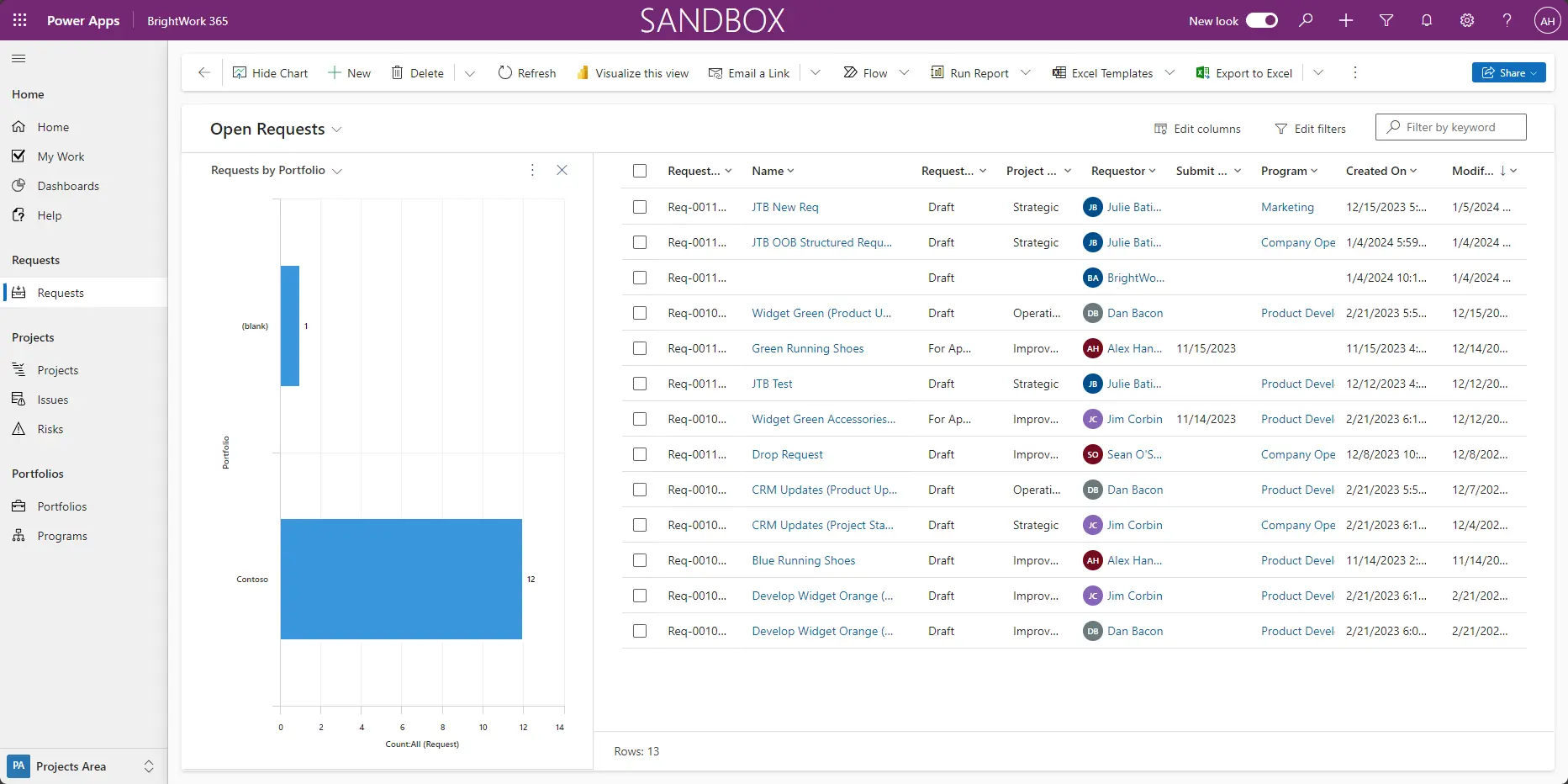
Real-Time Insights with Dashboard Reporting
Standardized project management is only effective when it’s measurable. BrightWork 365 integrates seamlessly with Power BI to provide actionable business intelligence reports and interactive dashboards.
These reports offer real-time visibility into key metrics such as resource allocation, timeline performance, and enterprise risk management indicators—enabling better portfolio management and more confident decision-making at every level.
With built-in collaboration tools, centralized project data, and integrated reporting, BrightWork 365 empowers teams to stay aligned, proactive, and focused throughout the project lifecycle.
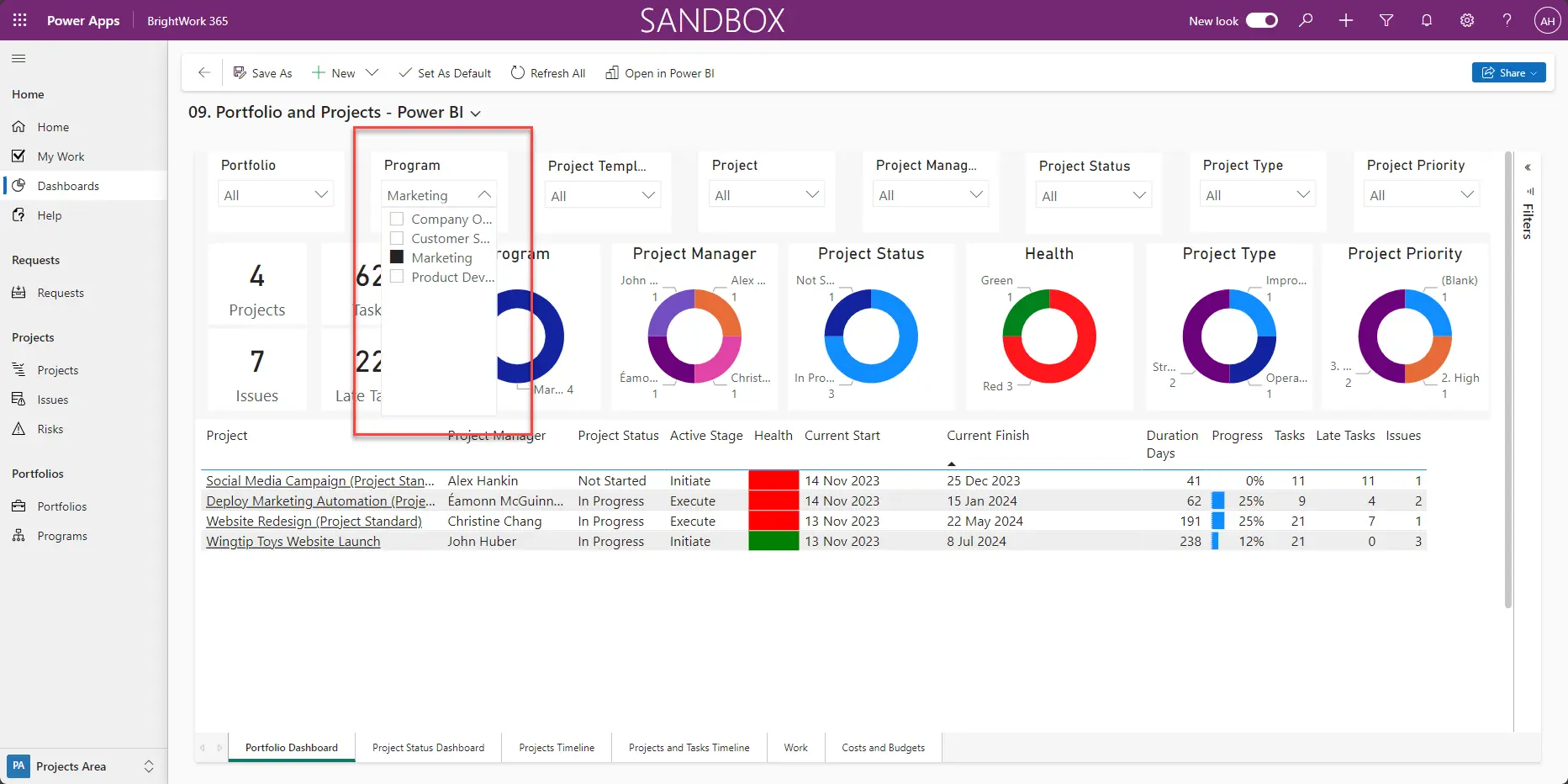
Overcoming Common Challenges in Standardizing Project Management
While the benefits of standardized project management are clear, implementation can come with its own set of challenges. From team resistance to scalability concerns, organizations must be prepared to navigate common roadblocks. Understanding these challenges—and how to address them—can help ensure long-term success. Let’s have a look.
Avoiding Resistance to Process Changes
To drive adoption, involve teams early, communicate the benefits, and provide training. Highlight how standardization reduces ambiguity and increases success rates.
Ensuring Flexibility in Standardized Workflows
Strike a balance between structure and adaptability. Offer templates and workflows that can be tailored based on project size, complexity, or methodology.
Scaling Standardized Project Management Across Teams
Microsoft 365 and BrightWork 365 make it easy to scale consistent practices across departments with centralized tools, templates, and governance controls.
Get Started with BrightWork 365 for Standardized Project Management
Standardizing project management doesn’t have to be overwhelming. With the right tools and approach, your organization can drive consistency, improve efficiency, and align project outcomes with strategic goals. BrightWork 365 simplifies this process by providing a Microsoft 365-based solution designed to embed best practices, automate workflows, and deliver real-time visibility across your project portfolio.
From pre-built templates to powerful integrations with the Microsoft Power Platform, BrightWork 365 enables scalable, flexible, and user-friendly project standardization for teams of all sizes.
Take the BrightWork 365 Demo for hands-on access to the features that can transform how your teams plan, manage, and deliver projects.
